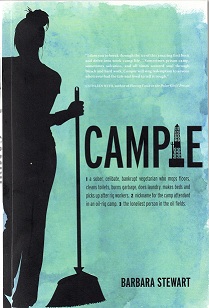Whatever the occasion, going to town requires thought as to dress, or could require thought if one was given to care. A quick run to the feed store or Central Builders is pretty straightforward. But for such an event as a book launch, especially if it is one’s own book launch, may call for a bit additional consideration.
If it is a high-brow literary event, would I wear the tried and true tweed jacket with suede elbow patches, possibly over a sweater vest? — how timeless is that combo? Or is it so dated to be pathetic. Or perhaps I could try the po-mo look — lots of black, maybe even a fake piercing and a temp ‘tat.’
My criteria are not driven by the whims and caprice of the Style Section of the Globe and Mailwhich we buy each Saturday, but rather by necessity. Something that doesn’t show dog hair is high on the list. There is enough black hair in the seat crevices and cranny’s of my truck to knit a new hound. Something that relates to the weather, usually waterproof, reinforces the gumboot archetype.

But really, I don’t care. I take lessons from my Grandpa. His long legs were perpetually clad in blue denim overalls. Annually, upon Grandma’s urging, he bought a new pair, stiff as boards, which he initially saved for church. After a few months, they became his town and house pair. Eventually they were worn in the shop, on the tractors and in the calving barn doing the chores he loved. After a year or so on this duty, they were fit only for wipe rags. Grandma made quilt squares from any section that was not threadbare, grease stained or soiled by the wet but messy miracles of animals, but there were only few.
But it is not your clothes that are noticed at a book launch. It’s your fingernails.
I gave a talk recently and was setting up to sell and sign books to the good folks in line, money in hand. I glanced down at my hands and saw the half-moon of cargo delineating each and every nail. Not only that but there was a stubborn smear of chainsaw oil giving the edge of my hand a delicate blush of purple, not unlike a fresh bruise. Various scratches. Enough grit in my fingertips to make cop prints and a dusting of Merville Silt, apparently a particular noxious element according to the Sears Carpet Cleaning Technician who does our rugs once a year.
So, as the first pink-fingered, smooth-handed lady passed me my book to sign, I almost felt the urge to make some glottal grunt to match what really mattered, my hands there on the page. Now her page. Soiled. She glanced down at the virginal page, at my stubborn grime and made a small silent “Oh” with her mouth. I felt her gaze, looked up, and gave a wan smile.
Don’t worry about the clothes, check your fingernails first.
Paula’s note: Harold originally sent the above in as a comment to Preparing to Launch, a guest blog by Susan Ketchen. It’s so well written — and funny — that I decided to run it as Preparing to Lauch Part 2.
The subject of clothes, fingernails and potentially embarrassing moments that happen to authors at book signings seems to have struck a chord for many writers. Check back in a couple of weeks for Preparing to Launch Part 3 & 4.

 writing Campie was to tell a story about failure and hope. The underbelly served a purpose. Although it took a few deep breaths to own the introduction, “a sober celibate bankrupt vegetarian …”
writing Campie was to tell a story about failure and hope. The underbelly served a purpose. Although it took a few deep breaths to own the introduction, “a sober celibate bankrupt vegetarian …”